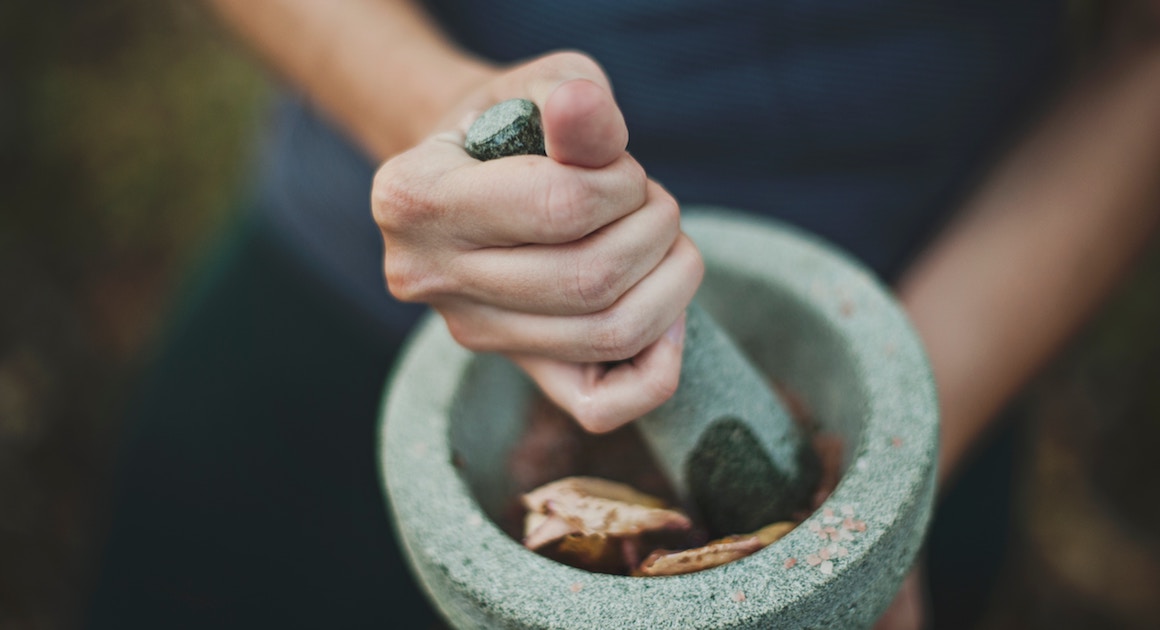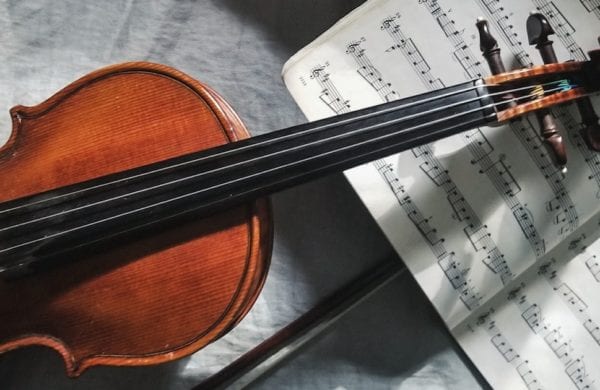
Changing Poison Into Medicine
What’s the worst problem you have right now? Have you lost your home? Your job? Have you watched your savings diminish before your eyes as I have mine? Or are you facing a terrible illness?
From the Buddhist perspective, all people are endowed with the innate ability to create value out of any situation, no matter how awful or tragic. Unlike the idea that every cloud has a silver lining—that something positive can always be found in everything negative—the principle of changing poison into medicine explains that we can transform even the most horrific tragedy into the very thing we need to become happier than we currently are.
WHAT MAKES AN EVENT “BAD”?
We tend to label any event “bad” that makes us suffer and seems unsolvable, believing we can see at one glance with perfect clarity the entirety of our lives from beginning to end and know the final value of any event the moment it occurs. In believing ourselves to be endowed with this perfect vision, however, we fail to recognize two important things:
- The significance of any event changes depending on the circumstances surrounding it. A professional football player might judge a career ending injury to be unequivocally bad until the plane he otherwise would have taken with his teammates crashes on its way to a game.
- The significance of any event changes depending on what we decide to do next. Our greatest failure can, and often does, plant the seed for our greatest victory. One could argue that Barack Obama would never have become President of the United States had he not suffered a devastating loss in a House race against Bobbie Rush.
SOLVING THE EXTERNAL PROBLEM
Typically, we try to solve our problems using strategies we think have the highest likelihood of success. If Solution A doesn’t work, we try Solution B. And if Solution B fails, we turn to Solution C. And if Solution C fails then…we turn back to Solution A. Which almost certainly still doesn’t work, leading us to try Solution B again, and so on. We continue to cycle through all the solutions we’re willing to try and that we can think to try until learned helplessness ensues and depression sets in.
Many times, however, the true answer is Solution D. Solution D is often something we’ve either dismissed as unworkable or that literally hasn’t ever occurred to us. But Solution D is the one thing that can enable us to achieve the victory for which we were hoping or a victory far greater than we even imagined.
How, then, do we identify Solution D? I do it by consciously opening my mind up to trying out novel solutions. But it’s not easy. We might think we’re near to finding Solution D if the solution we’re contemplating seems too hard, if not impossible, to implement, risks something valuable we don’t want to lose, or requires more courage than we think we have. But a given solution may exhibit all of those characteristics and still not be Solution D. Sometimes Solution D isn’t hard, risky, or scary, but just doesn’t yet exist as a possibility at the time the problem first presents itself. Or sometimes Solution D may not mean changing our outward circumstances at all.
PAIN IS NECESSARY FOR GROWTH
But how can we claim we’ve changed poison into medicine if our outward circumstances don’t change?
The answer involves recognizing that getting what we want isn’t the only way to achieve victory. Not to diminish in any way the seriousness of some of the problems we face, but often what we want isn’t what’s actually best for us, or is literally impossible to achieve (bringing back a loved one from the dead, for example).
This is not to say that changing poison into medicine means rationalizing failure or accepting a consolation prize. It means true victory often comes to us in an unexpected form.
But what other outcome besides the one we want could enable us to become happier than we were before the poison entered our lives? Achieving another favorable result we hadn’t foreseen? Possibly. But favorable circumstances can’t create lasting happiness because favorable circumstances are always temporary.
We could, however, claim genuine victory if in trying to change our outward circumstances instead we gain wisdom. Wisdom does create lasting happiness because, unlike favorable circumstances, it can’t ever be taken from us.
What’s required, then, for us to attain wisdom? From the Buddhist perspective, we gain wisdom by freeing ourselves from delusion. But we only relinquish our delusions when the pain that comes from continuing to believe them exceeds the pain of letting them go—and that only happens when circumstances stir them up. If we never suffered the pain of a break-up, for example, we’d never have the opportunity to discover we don’t need anyone’s love but our own to be happy. If we’d never lost our job, we’d never have had the opportunity to confront the truth that we hated it and stayed in it only out of fear. So, in fact, difficult circumstances are necessary for us to become happy. Difficult circumstances are actually our good friends. A famous Buddhist quotation states: “When obstacle arise, the wise rejoice while the foolish retreat.”
A HAPPY LIFE
Some struggles, however, take years or even decades to win (one of the titles bestowed upon the Buddha was “He Who Can Forbear”). But as long as we refuse to give in to despair and firmly resolve to take concrete action until we either win or die, victory is always possible. And as we take that action, whatever it may be, we’d do well to remember Paul Newman’s example (shown here) as he faced a much larger George Kennedy in the boxing scene from the movie Cool Hand Luke. No matter how many times you get knocked down, always get up!
[jetpack_subscription_form title=” subscribe_text=’Sign up to get notified when a new blog post has been published.’ subscribe_button=’Sign Me Up’ show_subscribers_total=’0′]

Alex, with all due respect I think you make the process more difficult and complex than needed. I think the last line from Cool Hand Luke sums it up for me. The power of positive thinking and action. Things are never as bad as you think they are. Don’t let the bastards grind you down. Don’t just sit there and cry—do something! I think I inherited that attitude from my mother and so far it has served me well through some of the difficulties in my life! Not very profound but for me effective.
Safe trip to Florida and guaranteed good weather.
Alex, I think of my great-grandmother (born 1847). In her life she faced birth and death on an intimate basis. The doctor was twenty miles away by horse. She learned, as they all did, that you dealt with what life dealt you. I remember her telling me when my problems (those of a child) seemed huge, to learn from the situation and to act in such a way that the particular thing would not happen again. Her pragmatism was relayed to us from our grandmother and mother. Pete was right. We learned to assess the problem and to roll up our sleeves and deal with it. In the Great Depression, my father lost one job, heard about a newspaper that was hiring, went to the library, and read about linotypes practiced on a home-made keyboard, and got a job. When that paper closed he and a friend found the courage to go 600 miles north to another paper and there he worked until the war, when he went back to being a railroad engineer.
It is a very hard life people face today, but people got through it, and so will we! Tell Cruise to have a good time at Pete and Nana’s.
It is true that we do grow from “bad things” that happen in our lives. Perhaps today’s life is not as we had envisioned or hoped it to be but we do adjust and make the necessary changes and carry on. If we do not do this we will not have a fulfilling and satisfying and happy life.
I enjoyed the blog and of course have needed to read a couple of times. Look forward to next week’s.
Have a great visit to sunny climes.
Of course, bad things help us a lot if we open our eyes and see reality without trying to make it seem different. Accepting things just as they are is the very first step. The problem is a little bit harder if the poison comes from us. That is truly difficult to face and to change.
[…] este post do excelente Dr. Alex Lickerman (médico e budista), me deparei com uma definição de sabedoria […]
[…] upon transitions—even negative transitions—as adventures. You can change poison into medicine. Even if you’re fired. Even if you get divorced. Even if you become chronically ill. We all […]
[…] When I turned forty, I felt largely the same way. I’d married, had progressed in my career, and was enjoying most aspects of the life I’d spent the previous forty years constructing. I felt my work was contributive and therefore that my life was meaningful, and even when I grew seriously ill (as I described in a previous post,Overcoming The Fear Of Death), I was eventually able to work through the resultant complications and turn poison into medicine. […]
I have been a Buddhist in the SGI-USA for 42 years. I was pleased to see your article as it fit so succinctly with what I have applied in my life over the years. It is great that your blog is universal, all inclusive, something anyone can read and identify with principles available to all of us. Still it appears to validate your personal dedication to your beliefs, a wise approach. Thank you.
Francine